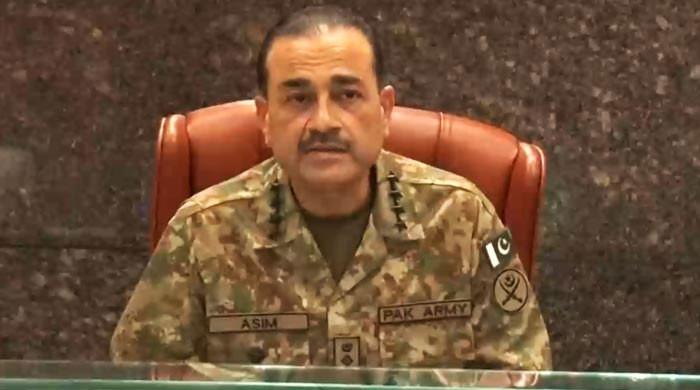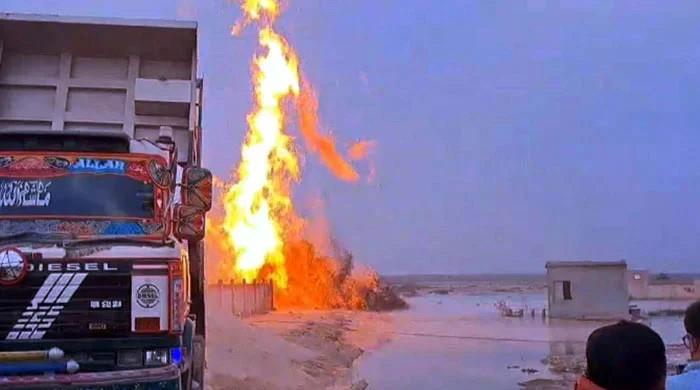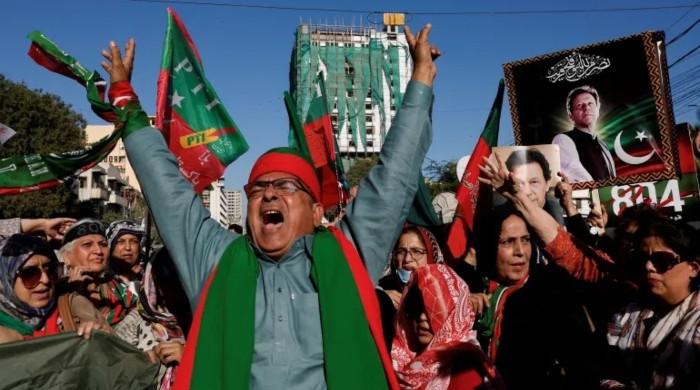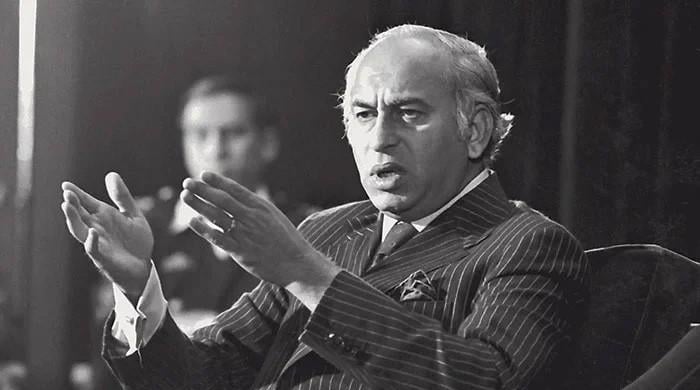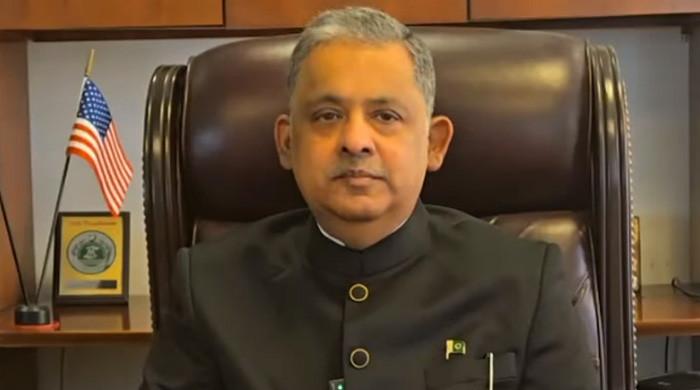KP won't expel Afghan refugees 'forcefully', says CM Gandapur as repatriation begins
"We have cultural and historical ties with Afghan refugees," says provincial chief executive
April 04, 2025
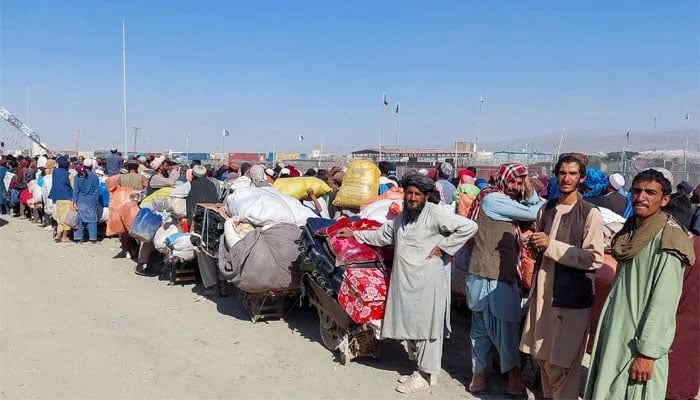
- "No Afghan refugee will be expelled by force," says CM.
- Says those who wish to leave voluntarily to be provided resources.
- "Only way forward with Afghanistan is through negotiations."
Khyber Pakhtunkhwa Chief Minister Ali Amin Gandapur on Friday announced that no Afghan refugee would be deported “forcefully” from the northwestern region of the country.
Addressing a press conference in Islamabad, the KP CM said: "No Afghan refugee will be expelled by force from KP. We are against such kind of forcible deportation of Afghan refugees.”
His remarks came at a time when the federal government has started the process of repatriating undocumented refugees and Afghan Citizen Card (ACCs) holders, as the deadline for their voluntary return ended on March 31, 2025.
The country has been hosting millions of Afghans for around five decades. Hundreds of thousands of them returned to their country in the last few years but still over 2.1 million are living in KP and other provinces.
The Pakistani authorities had set March 31 as the deadline for all the illegal Afghans as well as those who possessed ACC cards to return to their country amid rising incidents of terrorism in the country.
During his interaction with journalists today, CM Gandapur said: "We have cultural and historical traditions regarding Afghan refugees," adding that those refugees who wish to leave voluntarily would be provided with resources to facilitate their return with respect.
Responding to a question, the chief minister said that the only way forward with Afghanistan is through negotiations.
Raising questions over the intentions of the Centre, the KP CM said that they were still waiting for the for the federal government to approve the terms of reference (TOR) to initiate talks with the interim Afghanistan government led by the Afghan Taliban.
It is pertinent to mention here that the KP government had planned to send a provincial jirga to Kabul to address the bilateral issues, including the cross-border attacks and use of Afghan soil by terrorists.
CM Gandapur said that stability in the region was linked with peace in Afghanistan. He said that PTI had the solution to the menace of terrorism being faced by the country.
Responding to the incumbent government’s allegations about the resettlement of terrorists and the resurgence of militancy in the country, the CM termed the statements from the treasury benches “extremely irresponsible”.
Number of Afghan refugees in Pakistan
According to data obtained by Geo News, there are currently 2.1 million registered and unregistered Afghan refugees in Pakistan.
Sources in the Ministry of States and Frontier Regions (Safron) state that 1.4 million Afghan refugees are legally registered, while 800,000 Afghan nationals hold an 'Afghan Citizen Card' (ACC), but their stay is now considered illegal. However, the government claims that the total number of Afghan refugees in Pakistan is three million, all of whom are set to be repatriated this year under the illegal foreign nationals' deportation plan.
Afghans residing in Pakistan fall into four categories
Afghan nationals residing in Pakistan for decades fall into four categories.
The first category consists of Afghan citizens who fled to Pakistan due to instability in Afghanistan and were granted official refugee status. In 2007, Pakistan issued Proof of Registration (PoR) Cards to these refugees, who now number around 1.3 million. The government issued these cards only once, renewing them periodically, with the current validity expiring on June 30, 2025.
The second category includes Afghan nationals who were issued Afghan Citizen Cards (ACC). Approximately 800,000 individuals received these cards in 2016, and they are now being repatriated as part of government deportation efforts.
The third category comprises Afghan nationals who fled to Pakistan after the Taliban takeover in 2021. These individuals were granted asylum under international protocols. While the Pakistani government initially claimed that 600,000 Afghans arrived after the US withdrawal, the United Nations High Commissioner for Refugees (UNHCR) states that only 200,000 were officially registered.
The fourth category includes undocumented Afghan nationals who lack both PoR and ACC status and are not registered as asylum seekers from the 2021 influx. This category also includes those who have married in Pakistan and obtained fake national identity cards. Over the past two years, the National Database and Registration Authority (Nadra) has been cancelling such fraudulent IDs through its National Verification and Renewal Drive, now classifying these individuals as illegal residents.




